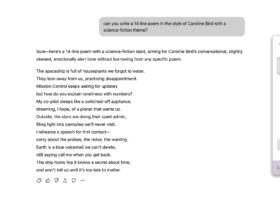On #100rejections … (and 2 subscriptions)
The other day on Twitter I saw Penny Shutt mention #100rejections. Intrigued, I followed the hashtag and felt I’d stumbled on some sort of masochistic cult…
“Heard the outcome of a GDC scholarship that I applied for…!
Didn’t get it! All good, another ✔️ for #100rejections.”
“Holy EFF I might make #100rejections in the first month at this rate. I’ve got 11 in two days. Go me?”
“This year was the first year I seriously submitted work to literary journals. My goal: #100rejections”
Can this be true? My first thought was along the lines of ‘duh? I’ve easily got a hundred bad poems right now which I could send to a cluster of fine mags and be guaranteed rejections’. But I guess that’s not the point.
I started thinking of the high octane telesales people who talk about how great it is to get knocked back, because every rejection means you’re closer to making a sale. I can’t really see the logic in it – just feels like statistics gone nuts. But then again there’s no logic in my preferring the word ‘declined’ to ‘rejected’ when poems don’t make the cut with an editor. As someone pointed out to me recently d’you mean as in ‘your credit card has been declined’? All-righty.
Louise Tondeur helpfully pointed me in the direction of this blog post from 2016, by Kim Liao. Here’s an extract:
My ego resists mustering up the courage to submit writing to literary magazines, pitch articles, and apply for grants, residencies, and fellowships. Yet these painful processes are necessary evils if we are ever to climb out of our safe but hermetic cocoons of isolation and share our writing with the world.
[…]
Perhaps aiming for rejection, a far more attainable goal, would take some of the sting out of this ego-bruising exercise—which so often feels like an exercise in futility.
I can see how we all have to play whatever mind games it takes in order to submit our work for outside scrutiny and still retain the confidence and/or determination to keep going. But aiming for rejections feels to me like an ‘exercise in futility’ in itself. I wonder if by trying to ‘protect’ the fragile ego in this way you’re just feeding the problem by elevating the status of a rejection – increasing its significance, rather than allowing yourself to move away and on from it.
There was a good recent discussion of #100rejections on Twitter, starting with this comment by Natalie Ann Holborow (@missholborow) which struck a chord with me:
“Not sure about this #100rejections thing. Surely it’s knocking yourself back before you’ve started? For me, it means more to aim high, work hard & use rejection as a valuable way to improve so that I can be my very best next time. Rejection happens, but I don’t need to seek it.”
Perhaps aiming for 100 submissions a year (on the basis that you may get some acceptances in among the rejections) is one thing, although personally I know my creative brain goes to sleep if I turn the business of writing poetry into a numbers game. I do berate myself for not sending work out, it’s true, but I’d rather not send at all than send for the sake of achieving some numerical goal.
It’s obvious I’ve come late to the #100rejections party – Kim has written about again here, three years later, on ‘What collecting 100 rejections taught me about creative failure‘, during which time various writers and artists have run with it.
I can see how the #100rejections meme works for some people – movements create camaraderie if not community, and Kim Liao’s assertion that ‘since I’ve started aiming for rejections, not acceptances, I no longer dread submitting’ clearly holds good for many. But it’s not really my bag.
In other news, as a couple of magazine subscriptions come to an end I’ve just subscribed to The Moth and Stand to take their places. Neither are journals I’m familiar with, but I know them by reputation and am looking forward to seeing what they hold.



Yes, I think aiming for sending in submissions is a more encouraging plan, although it’s good to acknowledge that this means treating every poem not taken as a new chance rather than an ending. And have you seen Banshee magazine? It’s a really good read!
Thanks for the recommendation Grainne, actually I have just bought the ‘Banshee Bundle’ and look forward to reading …
Yes, I think I’m with you on this one, Robin! I am aiming to send something out each month if I can – but as most submissions are 3-6 poems, I already know that I don’t have enough poems ready for March. Ten years (approx) of submitting poems to magazines/comps/publishers has toughened me up and I spring back quicker these days from the despondency of rejection. This has only happened, I think, because I’ve submitted a lot (but obviously not as much as the #100rejections gang). But, as with all things, go with whatever works for you, is my general motto.
Hi Josephine, yes – whatever works for you is a good rule of thumb! Like you I think I’m better at it all than I was to begin with. Although a big run of rejections can be dispiriting. For me it definitely helps to always have ‘something out’.
Thank you for this! I can’t lie, it is like a wall of water hitting you when you think you have written an edgy, high octane possible winner whilst sacrificing your normal style to try and fit their ‘essence’ but then you still don’t make the mark! I will never ever again pay for a ‘tip jar’ submission again! At least I get to submit rejections elsewhere!
Thanks for stopping by and commenting, Don. It’s difficult to second-guess what editors want I suppose, sometimes even they don’t always know until they see it….
It’s difficult to see how rejections help in any way since most editors have so much work on their hands that any feedback is out of the question. Some of us find it very difficult to separate out rejection of our work from rejection of ourselves, even though rationally we know the difference. I can see the camaraderie in the #100rejections thing, I think I’d find that it made the whole submission/ rejection process less lonely.
On a different note, I’ve been subscribing to the Moth for a couple of years and really enjoy it – a great mix of poetry, short stories and visual art.
Hi Diana, perhaps by ‘collecting’ rejections it helps some people to become more thick-skinned about it, rather as Josephine mentioned (the more of them you get the less sensitive you become).
Still awaiting my first copy of The Moth but am looking forward to it!
The worst is when you bend over backwards to go with the spirit of a magazine then they respond the next day with “sorry, these weren’t a good fit..” But after ten years of submitting I’d say it’s impossible to guess what editors want. Aiming for rejections though seems like playing psychological tricks on yourself to bolster your morale. Perhaps you just need to develop a Zen-like detachment and also see each rejection as a new opportunity.
Hi John, I agree that second-guessing editors is impossible. They’re reading submissions in the context of what they’ve just read, what they’ve already decided to put in the issue, what themes they may have (not necessarily made public) and so on. They may like the same poem one day and not like it the next. I think the ‘Zen-like detachment’ is a good idea.